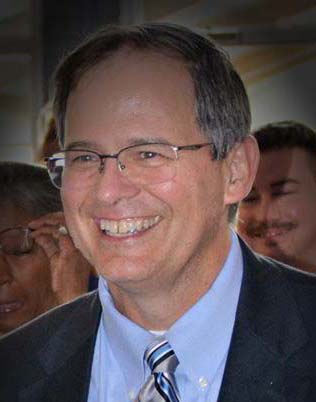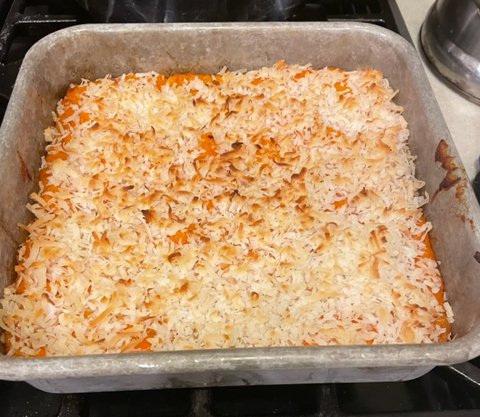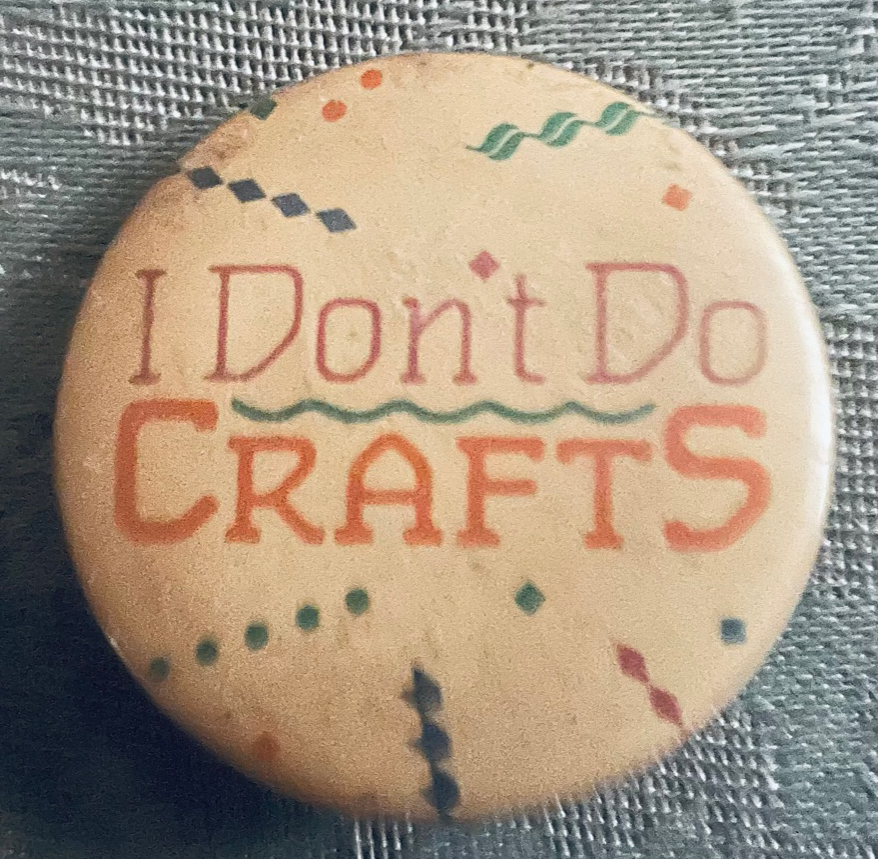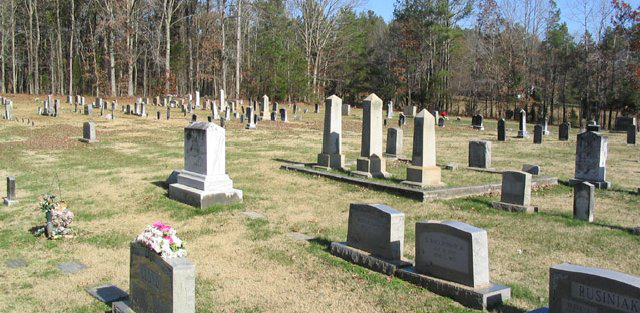The first church I served was Bethel Baptist Church in Chapel Hill, N.C. “Bethel” in Hebrew means house of God.
The church had many fine people in it, but even though it was in Chapel Hill it could have been a million miles from the university. Racism was rampant, which was bad because a Black person had a farm adjacent to the church’s property and, as they say, the cows would get out and not come home.

Chris Ayers
More than once I would be exercising in the living room of the parsonage and see cows standing in the street. It was not a good sign. Besides standing in the street, the cows had a bad habit of pushing over tombstones in Bethel’s graveyard. I said to myself and my beloved before leaving Bethel, “I will never go to another church that has a cemetery.” It seemed like 90% of our deacons’ meetings were about cemetery matters.
The church cemetery
At one of those wonderful deacons’ meetings, the topic of discussion was whether a church member’s sister should be charged $100 to be buried in the cemetery or if she should be free even though she had not been to the church since she was a little girl. I wanted her to be buried free — who needs the headaches of charging the family — but the deacons voted unanimously to charge $100.
“I knew it was a big mistake, and soon I would be proved right.”
I knew it was a big mistake, and soon I would be proved right, not that I’m right all the time.
The church member was furious, red in the face. He asked if he could attend the next deacons’ meeting. The deacons listened to the church member’s remarks and acted as if — well, they acted totally different than the previous meeting, and they unanimously voted to make no charges for the burial in the cemetery.
The cemetery book, by the way, was kept by one of the oldest members in the church, too old to attend worship. And the cemetery book, which listed which graves were filled and which were not, was worn and dusty and looked as old as Moses. The son of the cemetery bookkeeper was a deacon, and just about every meeting he would say, “My dad is not getting any younger. We need to find someone else to keep the cemetery book.”
No one wanted the job. No one. After about three years of hearing “my elderly dad can’t keep the cemetery book much longer,” we finally had a poor soul, a younger guy, volunteer to keep “the book.” When the elderly bookkeeper heard the book was going to a new person he said, “That new pastor is coming in and changing everything.”
Serving a church can be really fun.
Sensing a new call
I had been at Bethel six years, a long time as pastorates went for Bethel. This was one of those seminary student churches, a place to get started, to get some income while in school, but to leave once you graduated. I had stayed two years after my graduation, but now I was feeling a strong need to find another congregation.
I got a call from a church in Roanoke, Va., the city with the Big Star.
For tourists, the Roanoke Star is described as “an iconic symbol of Virginia’s Blue Ridge and a must-see spot when visiting the region. The star sits perched atop Mill Mountain and overlooks the surrounding valley and Blue Ridge Mountains, serving as a beacon and welcoming sign to visitors. It is illuminated every night. As the largest, free-standing, man-made, illuminated star in the world, the Roanoke Star is one of the most photographed attractions in the area.”
“It seemed it probably was a good church. Wrong assumption.”
The Roanoke church had been served many years earlier by a popular professor at Southeastern Baptist Theological Seminary, so it seemed it probably was a good church. Wrong assumption.
The church’s pulpit committee came to Bethel to hear me preach. So as not to be obvious, they split up and sat in different parts of the sanctuary. Everyone, though, knew a pulpit committee was present because we never, and I mean never, had that many visitors. It really is not hard to spot a pulpit committee.
Pulpit committees are interesting. I guess that’s the easiest and most Christian way to phrase it. I know a minister who says, “A church may be worse than its pulpit committee, but it will never be better than its pulpit committee.”
That pastor ought to know because once when he was called to a new church, while he was in his office the first day on the job, there was a knock on his office door. It was a woman who had served on the pulpit committee. With God as my witness, she sat down in a chair and said, “Now let me tell you the truth.”
The Colonial Inn
Well, we didn’t need a woman to tell us the truth. The truth was crystal clear from our lunch meeting after worship with the pulpit committee at the historic Colonial Inn.
 Colonial Inn, a 10,000-square-foot two-story inn, was built in 1838 as the Orange Hotel to serve boarders and travelers conducting business in the county seat of Hillsborough. It passed through several owners and names — Strayhorn’s Hotel, Occoneechee Hotel, Corbinton Inn — before being dubbed the Colonial Inn in 1924. The Inn, an 1838 landmark in a quiet and sleepy Southern town, was lovingly restored in 2020.
Colonial Inn, a 10,000-square-foot two-story inn, was built in 1838 as the Orange Hotel to serve boarders and travelers conducting business in the county seat of Hillsborough. It passed through several owners and names — Strayhorn’s Hotel, Occoneechee Hotel, Corbinton Inn — before being dubbed the Colonial Inn in 1924. The Inn, an 1838 landmark in a quiet and sleepy Southern town, was lovingly restored in 2020.
Food could be served family style. I remember the country ham, biscuits and, most of all, the sweet potato casserole, which was to die for. Unfortunately, the Inn’s sweet potato casserole is no longer on the menu. Sometimes things don’t get better with age.
“The food was good in our meeting with the pulpit committee, but that’s all that was good.”
The food was good in our meeting with the pulpit committee, but that’s all that was good. An elderly man spent about 10 minutes talking about Nostradamus. It was really weird. The kicker, though, was someone asked Vicky, the Vicky who had graduated from law school and was working at a prestigious law firm, if she would sing in the choir and if she did crafts. Vicky was polite when asked, but I knew she was seething inside.
When we got into the car after our meeting with the Roanoke group, Vicky quickly said, “This is a call not confirmed by your wife.”
I, of course, agreed.
An unexpected call
Ironically, when we got back to the parsonage, as soon as we walked in the door, the very second we entered our kitchen, the phone rang. It was the chairwoman of the pulpit committee at Wedgewood Baptist Church in Charlotte. Wow, a woman chairperson of a pulpit committee! And I knew of Wedgewood’s progressiveness from a friend who recently had moved from a nearby church to another progressive Baptist church in Charlotte. Yes, “progressive” and “Baptist” are not oxymorons. In fact, at that time, Charlotte had perhaps the four best progressive churches in the entire United States, of which Wedgewood was one.
Well, I ended up going to Wedgewood, and Vicky became one of 17 attorneys for little North Carolina National Bank, which would grow over the years to become the mammoth Bank of America. Vicky was one of three female attorneys. She was a real trailblazer, not a craft person (although there’s nothing wrong with craft people).
 Being asked if she did crafts by a pulpit committee really stuck in Vicky’s craw and she paid to have a custom-made pin that read, “I Don’t Do Crafts.” We still have the pin.
Being asked if she did crafts by a pulpit committee really stuck in Vicky’s craw and she paid to have a custom-made pin that read, “I Don’t Do Crafts.” We still have the pin.
Wedgewood’s pulpit committee asked Vicky only two questions: “How do you feel about moving to Charlotte?” and “What job opportunities do you think you will have?” Two very caring questions, and Vicky confirmed she thought this was a call from God.
I served Wedgewood 32 years, and yes, Vicky and I did all kinds of things, even crafts. We, however, were not expected to do crafts. And Vicky did sing in the choir because she loves singing, not because it was part of the minister’s wife’s role.
By the way, here’s the Colonial Inn recipe for sweet potato casserole. We put the recipe in Wedgewood’s cookbook. Don’t be fooled by how simple it is. It is delicioso. Enjoy!
COLONIAL INN CORNWALLIS YAMS
9 medium sweet potatoes
3 eggs beaten
1-1/2 cup milk
½ tsp. salt
1 cup sugar
½ tsp. ground cinnamon
½ cup crushed pineapple
½ tsp. ground nutmeg
1 stick butter
½ flaked coconut (I like more)
Wash sweet potatoes. Put in pot. Cover with water and bring to a boil. Cook for about 30 minutes, until skin can easily be peeled. Add all remaining ingredients except coconut and mix well. Pour into a greased 13x9x2 pan or something close. Bake 45 minutes at 350 degrees. Sprinkle with coconut. Turn on broil and brown coconut. Be careful not to overcook coconut. Not burnt, but brown. Servers 12-14. Recipe can be easily halved.
Chris Ayers was pastor of Wedgewood Church in Charlotte, N.C., for 30 years. He earned master of divinity and master of theology degrees at Southeastern Theological Seminary and a doctor of ministry degree from Columbia Theological Seminary.

